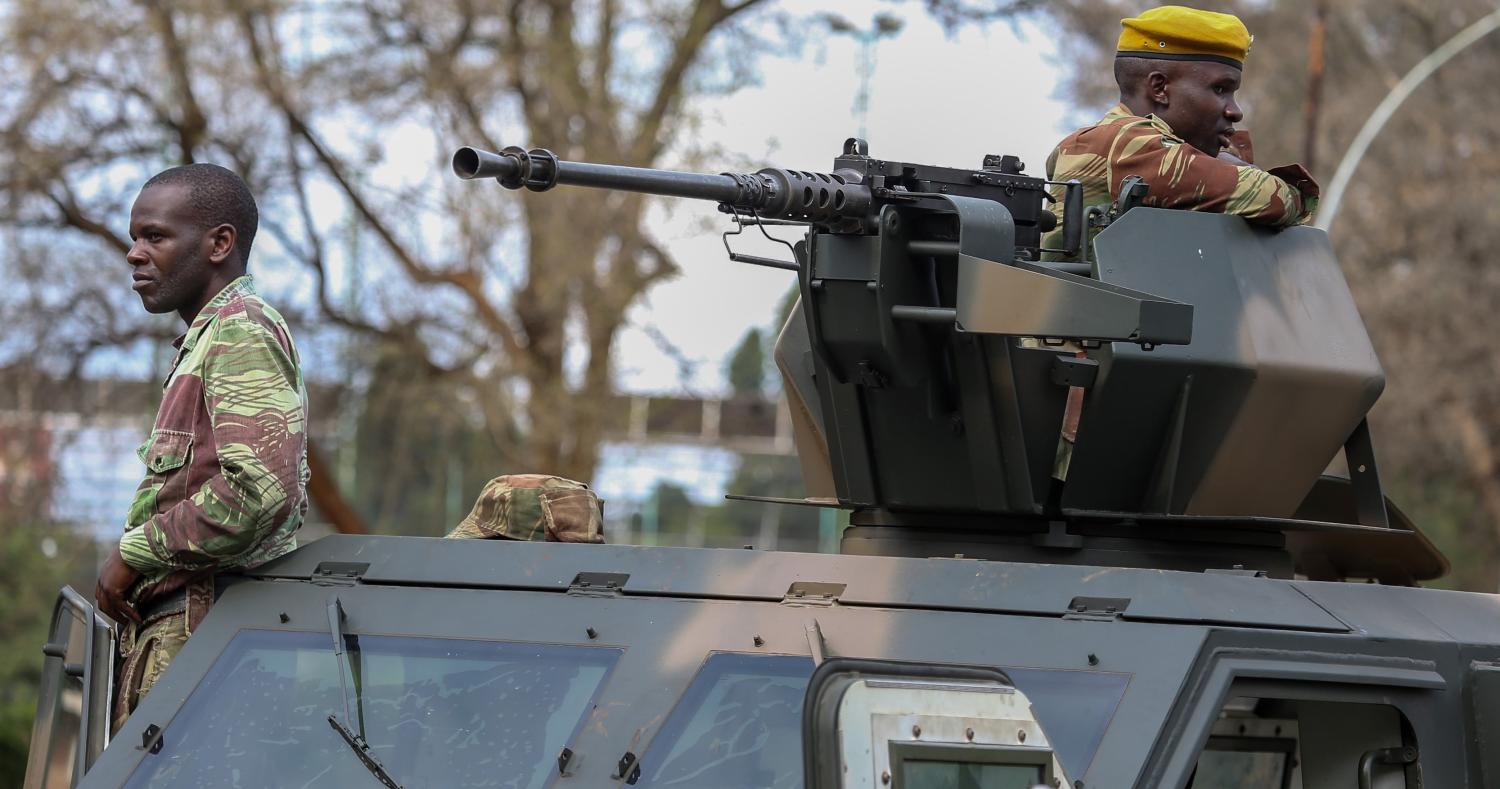It has been a strange coup. First the army leadership held a press conference two days in advance to warn it might occur. Then when the troops did move, the main targets President Robert Mugabe and his hated and ambitious wife Grace were neither killed, nor held incommunicado, nor put on a plane into exile as coup textbooks say they should have been. Rather they were confined to their luxurious residence, allowed to communicate publicly, and Mugabe treated as ostensibly still the President. And the South Africans, known friends of Mugabe, were allowed in to 'mediate'.
The plotters need to watch their backs. They should know Mugabe and he is so far refusing to stand aside. Recently sacked Vice-President Emmerson ('the Crocodile') Mnangagwa and the military leadership around General Constantino Chiwenga have had the courage or desperation to act as Grace moved relentlessly to succeed her husband. But the plotters have had trouble finishing the job. Time is not on their side. Mugabe is nothing if not a superb divider-and-ruler despite his 93 years, and Grace has been his long-time student. Both will be trying to scheme their way out of their predicament and will smell and exploit any division or lack of resolution among the plotters.
Mnangagwa will need to be very sure of his grip on government and the security forces, both to avoid any form of disruptive Mugabe fight back and to manage the popular hope for change Mugabe's fall has sparked.
Even if Mnangagwa and the plotters secure government and hold together – not guaranteed in a regime accustomed to centralised and personalised dictatorship – then there are only dim prospects of early betterment of Zimbabwe's shattered economy and traumatised society. All the senior plotters have helped cause Zimbabwe's economic decline and have profited from the regime's view of the economy as loot. Graft is what holds the plotters together, along with their fear that if Grace succeeded Mugabe as President her greed would be a threat to their personal interests and even their lives.
Mnangagwa has from time to time spoken of a need for economic reform. Few think he means it. There is little in his record as one of the regime's principal enforcers and plunderers to suggest he has a grasp of what is needed to return the economy to even the levels of prosperity and efficiency in place when Ian Smith left office.
A backdrop to the crisis, though unmentioned by the plotters, is the high risk of a return to ruinous hyperinflation. In 2009, Zimbabwe's inflation saw Harare obliged to print trillion dollar notes, which were equivalent to the price of a loaf of bread. Widespread hunger and collapse of services followed. Many Zimbabweans greeted recent forecasts of another impending large budget deficit with horror.
At the regime's heart is its unspoken commitment to dominance of Zimbabwe by the ethnic majority Shona. This propensity was at the centre of Mugabe's secession in 1975 from the then-principal liberation movement ZAPU, led by the older veteran politician Joshua Nkomo, from the minority Ndebele people. Mugabe has run a thoroughly Shona operation ever since. Shona domination was reinforced after independence in 1980, following the Lancaster House agreement, by a savage blood-purge in 1983 against the Ndebele. Thousands were killed.
Within the Shona, Mugabe's clique and personal circle has centred heavily on the Zezuru sub-tribal group. Mnangagwa hails from the more numerous Karanga division of the Shona, as do many leading members of the armed forces and liberation struggle veterans. If Mugabe goes, there are plenty of dissident Shona, not to mention the much-persecuted Ndebele, with scores to settle. So if Mnangagwa plays the tribal card too maladroitly, there is a high risk of inter-tribal fighting.
Much has been made of Beijing's interest in the coup. Many in the regime are highly comfortable with China's loose governance standards on human rights, foreign investment, accommodating personal interests and foreign aid. Beijing has wooed Mugabe assiduously. Chinese investors close to Beijing have been bank-rolling Mugabe's party ZANU-PF for some time in return for unbridled and destructive access to diamond mining, amongst other lucrative concessions. A transition to a post-Mugabe clique drawn from Mnangagwa's followers and the armed forces are unlikely to alter this comfortable relationship.
Real and progressive change is therefore someway off in Zimbabwe. There is no reason to think the plight of the dispossessed white community will figure in the thinking of the post-Mugabe rulers. An early return to Zimbabwe's place as one of the breadbaskets of Africa through farming reform is not in sight. Better prospects for black Zimbabweans are likely to be some way in the future. So next year's scheduled presidential elections will be lively and probably bloody, as Mnangagwa and the old gang try to hold on to the money.

